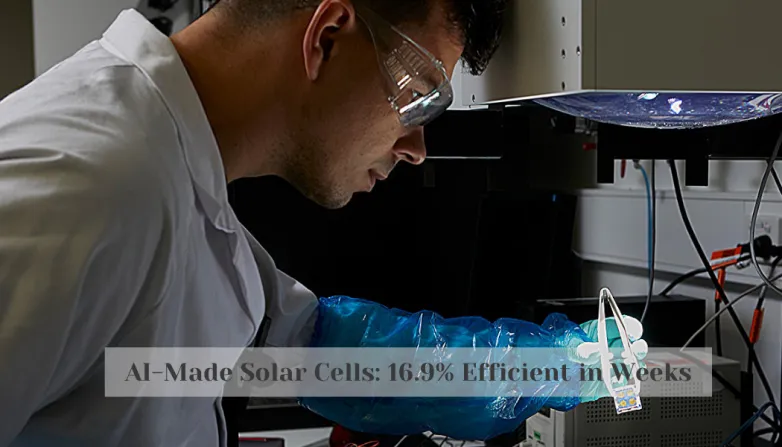AI-Made Solar Cells: 16.9% Efficient in Weeks
Nov 16, 2023 01:44 PM ET
- This new AI-driven system can rapidly and reproducibly design solar cells from the mineral perovskite. Researchers from RMIT, Monash and CSIRO achieved 16.9% power-conversion efficiency with no human intervention. Prototype your own solar cell with this system and industry partners.

Researchers from RMIT University, Monash University and CSIRO have developed an AI-driven system to rapidly and reproducibly design solar cells from the mineral perovskite. Using data generated by the team's system, a machine-learning model was developed to predict the properties of different solar cell recipes. The team achieved reproducible power-conversion efficiencies of 16.9%, the best-known result manufactured without human intervention. The model and automated system can also potentially be used to crunch the numbers and run tests on other types of solar cells. The team is now keen to work with industry partners to further test and prototype their work.
Can AI Rapidly Design Solar Cells?
- AI-driven system is able to design solar cells from the mineral perovskite, reproducibly achieving a power-conversion efficiency of 16.9%.
- Researchers believe that the model and automated system can also be used to crunch the numbers and run tests on other types of solar cells.
- AI-driven system is also capable of rapidly testing and prototyping the solar cell recipes.
- The team has plans to work with industry partners to further test and prototype their work.
- The AI-driven system has the potential to reduce the time to market for new solar cell designs.
- The AI-driven system could also enable the optimization of existing solar cell designs.
Also read

